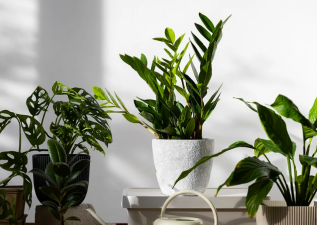Can Artificial Plants Boost Indoor Air Quality?
Artificial plants themselves cannot purify the air because they lack the ability to photosynthesize, absorb harmful substances, or release oxygen. They exist primarily as decorative items, providing visual pleasure and psychological comfort.
Artificial plants themselves cannot purify the air because they lack the ability to photosynthesize, absorb harmful substances, or release oxygen. They exist primarily as decorative items, providing visual pleasure and psychological comfort.
The impact of artificial plants on improving air quality is limited.
Artificial plants cannot photosynthesize themselves.
They cannot absorb carbon dioxide and release oxygen, and therefore cannot effectively regulate the oxygen-carbon dioxide ratio in indoor air like real plants.

They cannot absorb harmful substances in the air.
They cannot absorb harmful substances in the air, such as volatile organic compounds (VOCs) like formaldehyde and benzene. Real plants have a certain adsorption capacity, absorbing and breaking down some harmful substances through structures such as stomata in their leaves, thus contributing to a certain degree of air purification.
However, artificial plants are not without benefits. They can enhance indoor environments to a certain extent, bring visual pleasure and comfort, and relieve stress. Furthermore, they require no maintenance, such as watering and fertilizing, making them relatively convenient and long-lasting.
Overall, while artificial plants can enhance the aesthetics of indoor spaces to a certain extent, their effectiveness in improving air quality is far less pronounced than that of real plants.
Plants can help improve air quality!
Research shows that certain plants not only absorb harmful gases but also reduce particulate matter in the air, acting as "natural air purifiers"!
The following plants excel:
- Chlorophytum: A formaldehyde killer, one pot can purify 10 square meters of air!
- Dragon Plant: Releases oxygen at night, improving indoor air quality!
- Ivy: Absorbs PM2.5, making the air fresher!
